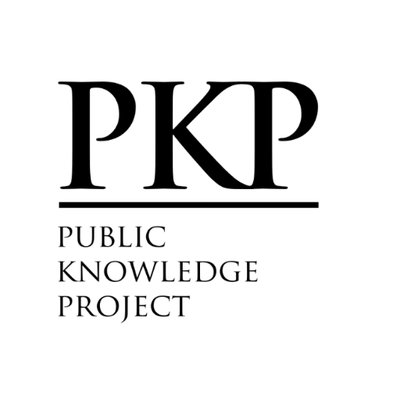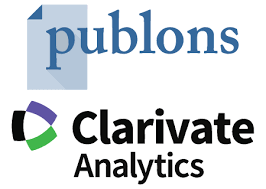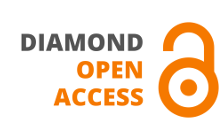Incentive fees at the heart of a reflection on the quality of auditing in French-speaking sub-Saharan Africa
DOI:
https://doi.org/10.59051/joaf.v8i1.89Abstract
The vulnerability of auditors with respect to the managers is an issue which currently makes headlines in sub-Saharan Africa and more particularly in Cameroon. It is with this in mind that this study seeks to verify if the quality of auditing in this region of planet is not imputable to the lack of incentives related to fees. Using classification and econometric analyses through the application of a logistic regression on data collected by questionnaire on 40 auditing firms in Cameroon, we find that the quality of auditing can be explained by the incentive fees. More specifically, this study shows that the probability of having a quality audit is higher when the auditing fees is increased and lower if they are reduced.
Downloads
References
Audousset-Coulier, S. (2008). La publication des honoraires d’audit par les sociétés cotées françaises : deux études de déterminants. Les déterminants du caractère volontaire de la publication des honoraires d’audit et les déterminants du montant des honoraires d’audits publiés. Doctorat en Sciences de Gestion, Paris : Ecole des Hautes Etudes Commerciales de Paris.
Bazerman, M. H., Morgan, K. P., Loewenstein, G. F. (1997). The impossibility of Auditor Independence. Sloan Management Review 38 : 89-94.
Carassus, D., Cormier, D. (2003). Normes et pratiques de l’audit externe légal en matière de prévention et de détection de la fraude. Comptabilité-Contrôle-Audit 9 (1) :171-188.
Choi, J. H., Wong, T. J. (2006). Auditor’s governance function and legal environments: An international investigation. Contemporary Accounting Research 24 (1): 13-46.
Citron, D. B., Taffler, R. J. (1992). The Audit Report Under going Concern Uncertainties: an Empirical Analysis. Accounting and Business Research 88: 337-345.
Colasse, B. (2003). Auditer une mission impossible? In Public Accounting, Organizations and Society 10 (2):149-169.
David C. H., Knechel W. R., Norman, W. (2006). Audit fees: A meta-analysis of the effect supply and demand attributes. Contemporary Accounting Research 23 (1): 141-191.
De Angelo, L.E. (1981). Auditor Size and Audit Quality. Journal of Accounting and Economic 3: 183-199.
Djongoué, G. (2007). Fiabilité de l’information comptable et gouvernance d’entreprise : une analyse de l’audit légal dans les entreprises Camerounaises. Communication au Colloque international, sur la gouvernance : quelles pratiques pour promouvoir le développement économique de l’Afrique. Lille, novembre.
Djoutsa Wamba L., Foka Tagne A. G. (2014), « Le comportement des audités: quel effet sur la qualité de service rendu par les cabinets d’audit au Cameroun? », Revue Gestion et Organisation 6 (2) : 93-103.
Djoutsa, Wamba. L., Takoudjou, Nimpa. A., Simo, B. (2013). Les déterminants de la complexité du système d’information comptable et financière dans les entreprises camerounaises. Revue Marocaine de Comptabilité-Contrôle-Audit 2 : 142-171.
Flint, D. (1988). Philosophy and Principles of Auditing. London, Macmillan Education.
Gaddour, I. (2013). Contribution à l’étude des comportements dysfonctionnels des auditeurs seniors : une approche managériale (le cas Français). Publié dans Comptabilité sans Frontières.
Hay, D. C., Knechel, W. R., Wong, N. (2006). Audit fees: a meta analysis of the effects of supply and demand attributes. Contemporary Accounty Research 23 (1): 141-191.
Hay, D., Knechel, W. R., Ling, H. (2008). Evidence of the impact of internal control and corporate governance on audit fees. International Journal of Auditing 12: 9-24.
Higgs, J. L., Skantz, T. R. (2006). Audit and non-audit fees and the market’s reaction to earnings announcements, Auditing: A journal of practice and theory 25 (1): 1-26.
Jensen, M., Meckling, W. (1976). Theory of the firm: Managerial behavior, agency costs and ownership structure. Journal of Financial Economics 3 : 305-360.
Hottegindre, G., Lésage, C. (2007). Un mauvais auditeur : dépendant et/ou incompétent ? Étude exploratoire des motifs de condamnation des commissaires aux comptes en France. Communication présentée au 28ème Congrès de l’Association Francophone de Comptabilité, Poitiers, le 25 mai.
Kelley, T., Margheim, L. (1990). The impact of Time Budget Pressure, Personality and Leadership Variables on Dysfunctional Behaviour. Auditing. A Journal of Practice and theory spring 21-41.
Lee, T. (1993). Corporate Audit Theory. First edition, Chapman et Hall, London.
Malone, C. F., Roberts, R. W. (1996). Factors associated with the incidence of reduced audit quality behaviours, Auditing. A Journal of Practice and Theory 15: 49-64.
Manita, R., Chemangui, M. (2007). Les approches d’évaluation et les indicateurs de mesure de la qualité d’audit : « une revue critique ». Actes du 28ème Congrès de l’Association francophone de Comptabilité, Mai.
Manita, R. (2009). La qualité du processus d’audit : une étude empirique sur le marché Tunisien. In la place de la dimension européenne dans la Comptabilité-Contrôle-Audit, France.
Margheim, Pany, (1986). Quality Control, Premature Signoff and Underreporting of Time: Some Empirical Findings. Auditing: A Journal of Practice and Theory 50-63.
Mautz, R. K., Sharaf, H. A. (1961). The Philosophy Auditing. American Accounting Association Sarasota.
Mitra, S., Déis, D.R., Hossain, M. (2007). The empirical relationship between ownership characteristics and audit fees. Review of Quantitative Finance and Accounting 28 (3): 257-285.
Ndjetcheu, L. (2013). Mécanismes de gouvernance et pérennité des établissements de Micro finance (EMF) de 2è catégorie au Cameroun : une approche par le contrôle externe. Communication aux Vème journées internationales de la microfinance, Université d’Orléans, 11, 12 et 13 septembre.
O’Sullivan, N. (2000). The impact of board composition and ownership on audit quality: evidence from large UK companies, British Accounting Review 32: 397-414.
Piot, C. (2001). Agency costs and audit quality: evidence from France. European Accounting Review 10 (3): 461-499.
Sakka, A., Manita, R. (2011). Les comportements de l’audité affectant la qualité de l’audit : une étude exploratoire sur le marché français. Publié dans comptabilité, économie et société, Montpellier, France.
Sikka, P., Puxty, A., Willmott, H., Cooper, C. (1998). The impossibility of eliminating the expectations gap: some theory and evidence. Critical Perspectives on Accounting 9 : 299-330.
Thietart, R.A. (2007). Méthodes de recherches en Management. 3e édition, Dunod.
Vafeas, N., Waegelein, J.F. (2007). The association between audit committee, compensation incentives, and corporate audit fees. Review of Quantitative Finance and Accounting 28: 241-255.
Downloads
Published
How to Cite
Issue
Section
License
Copyright (c) 2017 Alain Gilles FOKA TAGNE, Joseph NDASSI YEPGNOU, David KAMDEM

This work is licensed under a Creative Commons Attribution-NonCommercial-NoDerivatives 4.0 International License.
Authors who publish with this journal agree to the following terms:
- Authors retain copyright and grant the journal right of first publication with the work simultaneously licensed under a Creative Commons Attribution License that allows others to share the work with an acknowledgement of the work's authorship and initial publication in this journal.
- Authors are able to enter into separate, additional contractual arrangements for the non-exclusive distribution of the journal's published version of the work (e.g., post it to an institutional repository or publish it in a book), with an acknowledgement of its initial publication in this journal.
- Authors are permitted and encouraged to post their work online (e.g., in institutional repositories or on their website) prior to and during the submission process, as it can lead to productive exchanges, as well as earlier and greater citation of published work (See The Effect of Open Access).






















